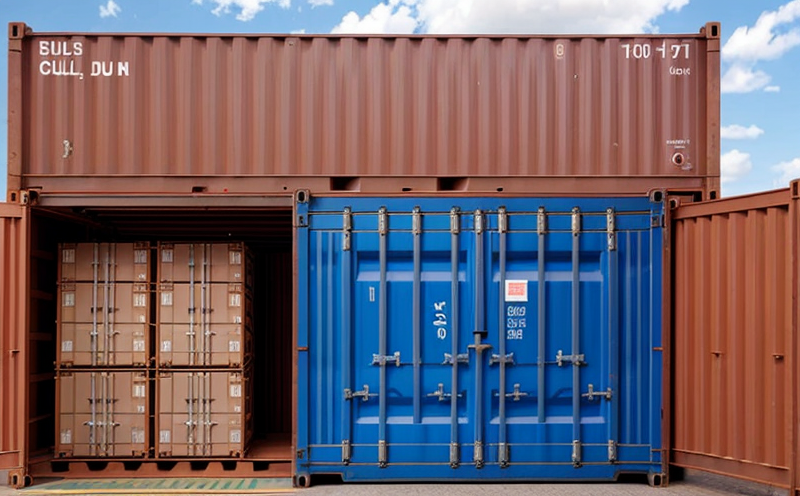USP Container Closure Integrity Testing
The USP (United States Pharmacopoeia) Container Closure Integrity (CCI) testing is a critical step in ensuring the quality and safety of pharmaceutical products. This testing evaluates the integrity of container closures, such as vials, syringes, and ampoules, to ensure that they protect the contents from contamination and maintain sterility during storage and distribution.
The USP CCI test is designed to identify any imperfections in the seal or closure system. These imperfections can be caused by manufacturing defects, improper filling, or handling issues. The integrity test aims to detect these flaws before the product reaches the consumer, thereby safeguarding patient health and compliance with regulatory standards.
The USP CCI testing process involves a combination of visual inspection, physical testing, and sometimes microbiological challenge tests. Visual inspections are conducted first to identify any obvious defects in the closure system. If no visible issues are found, further testing is performed using techniques such as helium leakage testing or vacuum testing.
Helium leakage testing is one of the most common methods used for USP CCI testing. It involves filling the container with a small amount of helium gas and then sealing it under pressure. The container is then placed in a helium detector, which measures any leaks that occur over time. This method provides a high degree of sensitivity and can detect even very minor defects.
Another method used for CCI testing is vacuum testing, where the container is sealed and then evacuated to near-vacuum pressure. If there are any leaks in the closure system, air will escape, creating a detectable change in pressure that can be measured. This method is effective for detecting larger defects but may not be as sensitive as helium leakage testing.
Microbiological challenge tests are also sometimes performed to assess the effectiveness of the container closure system in preventing microbial contamination. In this test, microorganisms are introduced into the container and monitored over time to see if they can penetrate the closure. This test provides a more comprehensive assessment of the closure's performance but is more time-consuming and labor-intensive than other methods.
| Method | Description | Sensitivity | Timing |
|---|---|---|---|
| Helium Leakage Testing | Fills container with helium and measures leaks under pressure. | Highly sensitive; detects very minor defects. | Quick, immediate results. |
| Vacuum Testing | Evacuates the container to near-vacuum and monitors for pressure changes. | Sensitive but less precise than helium testing. | Faster than microbiological challenge tests. |
| Microbiological Challenge Tests | Introduces microorganisms into the container and monitors for contamination. | Comprehensive but time-consuming and labor-intensive. | Takes longer than other methods. |
Industry Applications
- Vial testing for injectable pharmaceuticals
- Syringe integrity assessment
- Ampoule leakage detection
- Bottle and vial leak testing in oral medications
Customer Impact and Satisfaction
Implementing USP CCI testing ensures that pharmaceutical products meet the highest standards of quality and safety. By detecting imperfections in container closures early in the production process, companies can prevent costly recalls and product shortages. This not only enhances customer satisfaction but also protects brand reputation and compliance with regulatory requirements.
Customers who rely on USP CCI testing benefit from a more reliable supply chain, as the testing helps to identify and address any issues before they reach the consumer. This can lead to increased trust in the product and greater market confidence, ultimately driving sales growth and customer loyalty.
Competitive Advantage and Market Impact
USP CCI testing provides a significant competitive advantage by ensuring that products meet or exceed regulatory standards. This can help companies to differentiate themselves in the market, as consumers increasingly demand products that are safe and reliable.
In addition, USP CCI testing can help companies to maintain compliance with international regulations such as those set forth by the World Health Organization (WHO) and the European Medicines Agency (EMA). This ensures that companies can operate in a global market without facing regulatory barriers or legal challenges.





